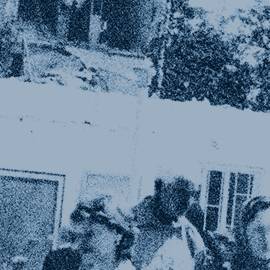Place of interview: not specified, possibly the city of Grozny
Interview date: after March 1995
Episode from the first Russian-Chechen war
The victim is a resident of the city of Grozny. She lived in her own house. She was an artist and an architect. When the assault on the city began on December 31, 1995, she stayed at home with her son and did not leave, although she had the opportunity to do so.
According to the victim, the Russian military, led by the lieutenant from the closest military post, broke through the front door of her house in the late evening. They began to beat her son with a rifle butt, and searched through their personal belongings. The military men then took the victim in to a separate room and raped her. At some point, the woman heard the sound of a machine gun and she feared that the military had killed her son. She called out for him and realised that he was still alive but badly beaten. Upon leaving, the military set the victim’s house on fire. While both mother and son were attempting to extinguish the fire, a grenade flew into the window. The ensuing explosion resulted in the mother wounding her ear due to the grenade fragments. Grabbing everything they could, the mother and son ran outside. Their house, along with all their remaining property, including the victim’s artwork, was completely burned down.
Comment from the Natalia Estemirova Documentation Center: the road from Grozny to the south remained open until mid-February 1995. The time described by the victim in the interview was when Russian troops controlled the entire city with all its suburbs. Chechen formations retreated from their last stronghold in the village of Chernorechye on March 6, 1995.
